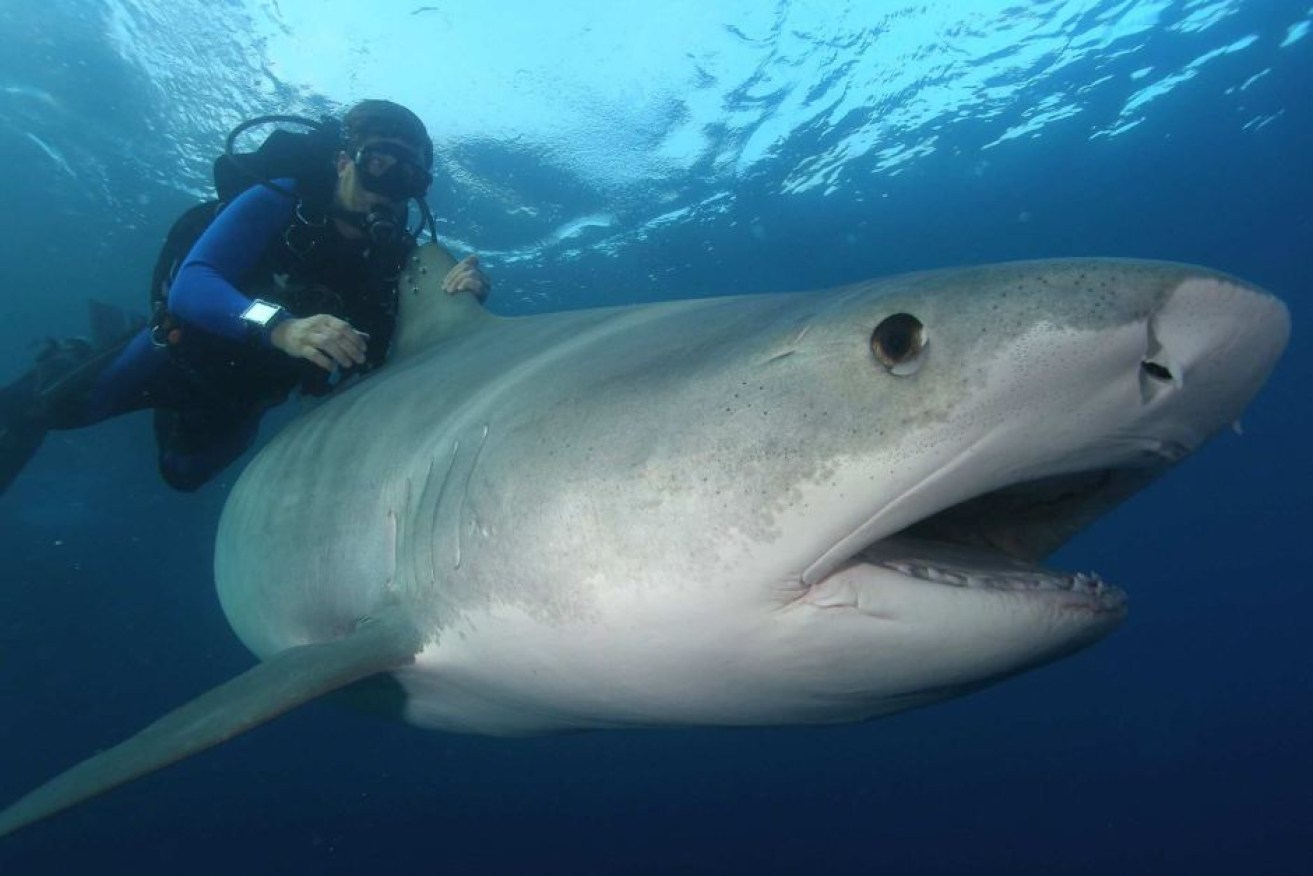‘Lazy’ tiger sharks opt to feed on dead turtles for ‘easy feast’, researchers find

The man has been flown to Melbourne for treatment. Photo: AAP.
A decade-long tiger shark study on the Great Barrier Reef has found the apex predators prefer an easy meal to stalking prey.
The research involved scientists from James Cook University, the Australian Institute of Marine Science and Biopixel.
Researcher Richard Fitzpatrick, from Biopixel and James Cook University, said the study had given scientists a world-first insight into the eating habits of tiger sharks.
“Sharks are inherently lazy. They’ll take the easiest option out,” he said.
The study revealed Queensland’s remote Raine Island, the world’s biggest green sea turtle nesting site, was a tiger shark’s takeaway of choice.
Between October and April, thousands of turtles lay eggs on the tiny island, but it is exhausting work and up to two adult turtles die each day.
Mr Fitzpatrick said that created a floating feast that had shaped the migration of tiger sharks.
“The turtle carcasses actually set up huge oily slicks on the surface,” he said.
“So the tigers could be swimming quite a distance away and pick up the scent of these rotting carcasses.

Dead turtles have become a favourite of lazy tiger sharks. Photo: AFP/Getty
Mr Fitzpatrick said sharks face the risk of injury when attacking live turtles.
“Turtles have powerful flippers and it’s hard to chase them down,” he said.
“The sharks have learnt to migrate to Raine Island for an easy feast.”
The research team also included scientists from the Queensland environment department, the University of Exeter and the University of Miami.
They spent years tracking the predators, attaching satellite devices to tiger shark fins and turtle shells to monitor where and when the animals surfaced.
Mr Fitzpatrick said sharks were swimming from as far away as Papua New Guinea and right across the Coral Sea to get the smelly turtle snack.
“We’re trying to get a better handle on how the entire ecosystem out there is working so we can help protect it,” he said.
The study has been published in the journal Behavioral Ecology and Sociobiology.
-ABC








